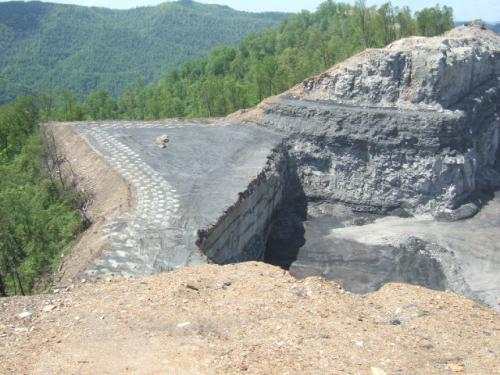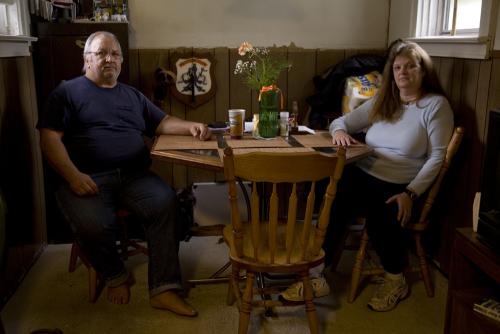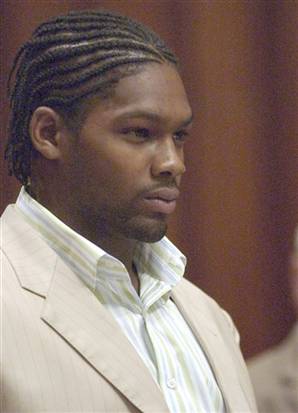


These are photos I took looking out across an active mountain removal site on Kayford Mountain in West Virginia. It's hard to get a feel for the size of the mining site without being there. It's even harder to imagine what it looked like in its natural state, but look at the dark green, tree-covered hills all around it to get some idea.
We'll be bringing you more about what's happening on Kayford Mountain soon, but I wanted to get these images out there right away. Larry Gibson showed us around here. He grew up on Kayford Mt. and now the land his family and others lived on for generations is being irreparably destroyed. He came with his cousin that day to mow the grass in two family cemeteries that are here. We walked past them on the way to what is now a cliff over the mining site where I stood and took these pictures. Another of their cemeteries has already been destroyed by the mining company as they've blasted the mountain apart and carted away ton after ton of coal from inside of it.
Larry told us not to waste his time. He wasn't showing us around for no reason; he wanted to make sure we were going to do something about what we saw. Larry is for abolishing the use of coal altogether, despite having family members who work in the industry and are upset by his stance. Unlike many people we spoke to who expressed support for continuing mining in a responsible, less destructive manner, Larry told us he doesn't believe it's possible to mine and use coal in a way that is not harmful.
Over and over again last week, people mentioned supporting the Clean Water Protection Act as the most important thing anyone can do right now to help bring an end to mountaintop removal. Contact your Congressmen and make sure they support it!
Please also check out our new forum on mountaintop removal, and these two blog posts from West Virginia last week - 1 & 2.
-Justin










 1
1 2
2






























